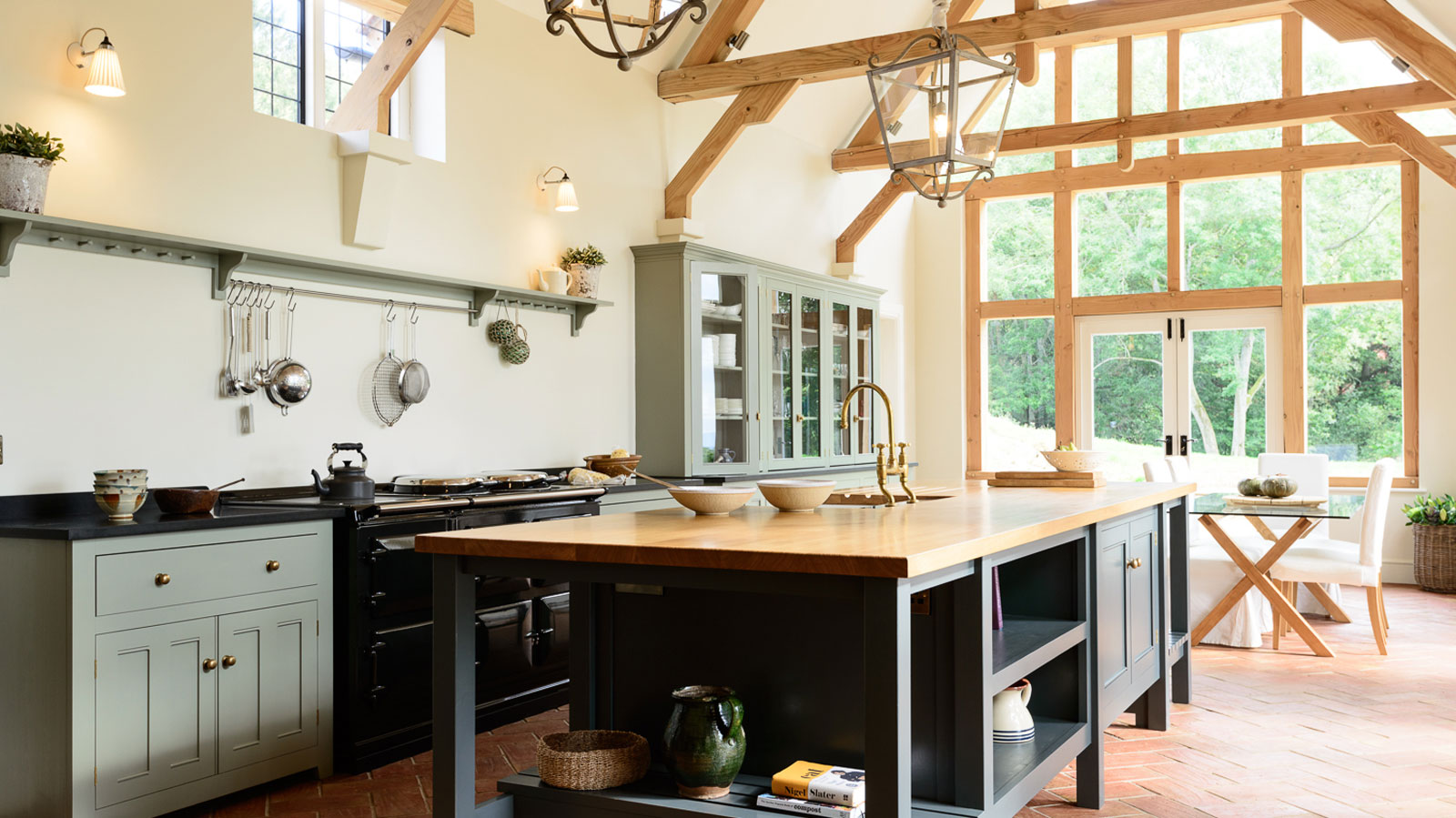ULEZ charge on homes would tackle air pollution and rising NO2, say researchers
Research suggests most of the nitrogen dioxide pollution in the London air comes from burning fuels for heating, with action demanded from the government to tackle the problem
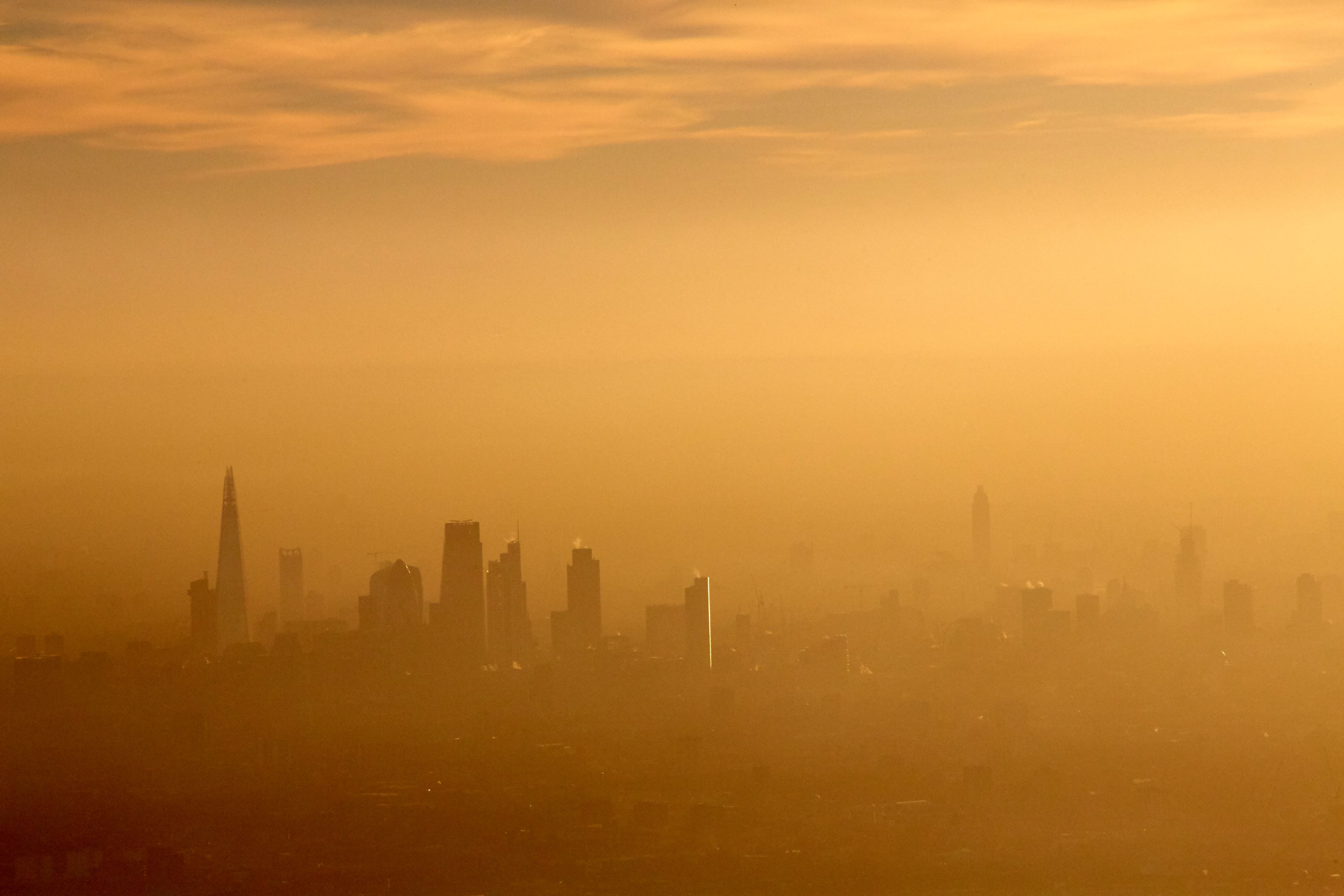
Bring your dream home to life with expert advice, how to guides and design inspiration. Sign up for our newsletter and get two free tickets to a Homebuilding & Renovating Show near you.
You are now subscribed
Your newsletter sign-up was successful
A new ULEZ charge on homes is needed to counter emissions of nitrogen oxides and other air pollutants for buildings in the future, claim academics.
Government figures claim the annual mortality of human-made air pollution in the UK is roughly equivalent to between 28,000 and 36,000 deaths every year, and heating homes is becoming an increasing contributor to this epidemic.
The government aimed to reduce this with the introduction of London’s ultra-low emission zone (ULEZ) where drivers are charged for their vehicles’ polluting impact, and another scheme is now being suggested for homes that also pollute the air.
These measures could force homeowners to seek gas boiler alternatives, with gas boilers being blamed as one of the main contributors to air pollution by experts.
What is nitrogen dioxide and where does it come from?
Nitrogen dioxide (NO2) is a brown gas released when fossil fuels are burned.
Its dangers are most notably as a risk to respiratory health with a global study estimating that in 2000, 19.8% of childhood asthma cases in urban areas were attributable to NO2 exposure.
NO2 forms when fossil fuels such as coal, oil, gas or diesel are burned at high temperatures and NO2 can also form indoors when wood is burnt.
Bring your dream home to life with expert advice, how to guides and design inspiration. Sign up for our newsletter and get two free tickets to a Homebuilding & Renovating Show near you.
Homes one of the main contributors to NO2 levels
The pollution caused by homes has been highlighted as key area in tackling air pollution and NO2 emission.
The European Commission previously launched infraction proceedings against the UK for breach of nitrogen dioxide limit values under the EU Air Quality Directive, and the European Commission (EC) said the UK’s failure to act on air quality was "perhaps the longest running infringement of EU law in history".
And research into air pollution in UK cities recently found that “air pollution is one of the highest causes of preventable death in the UK," according to Professor Alastair Lewis, an atmospheric chemist and chair of the Defra Air Quality Expert Group.
"More than half of the NO2 in central London air comes from burning fuels for heating. Mostly this is natural gas," he added, pointing out that a typical gas boiler produce significant amounts of NO2. “This latter issue – of space heating, as it is known – is going to become increasingly important in coming years. The average output is the equivalent of driving a new diesel car for 70km.”
Meanwhile another academic James Lee, research professor of atmospheric chemistry at the University of York and the National Centre for Atmospheric Science (NCAS) said action against polluting homes was needed because: “There will come a time when we will find that we cannot get air pollution levels to go down because we have done as much as we can by making improvements to pollution produced by road vehicles, but still have not tackled space heating and its impact on air quality. Then we will be at an impasse – unless we act now.”
ULEZ charge on homes put forward as a solution
Solutions have been put forward to tackle NO2 levels by boilers, with ULEZ fines touted by academics as a possible solution for homes that produce high levels of NO2.
Lewis claims that ULEZ measures targeting vehicles should be extended towards house pollutants with a particular focus on the way they are heated. "So buildings are a major source that needs addressing, either with the electrification of heating, or cleaner boilers," he said.
Other suggestions include retrofitting and regulation
Meanwhile another academic Saul Humphrey, a sustainability consultant and professor at Anglia Ruskin University, suggested stricter regulation might be a better route instead, saying: "Today, to our shame, we are still allowing buildings to be built with new gas boilers that are poorly insulated with no PV on the roof.
"Current building regs and current planning laws are just are not strict enough to address the climate reality, the health reality that we face. So whether we allow that to be dealt with in a ULEZ-type manner in cities or urban areas instigating their own controls, or we have a more macro legislative process that addresses the UK or England's needs."
As well as a ULEZ charge for houses that emit large amounts of NO2, retrofitting has also been suggested to reduce air pollution. "Retrofitting is something that people really only talk about in the context of energy efficiency. It’s quite rare for anybody to mention that the gutting and rebuilding or the refurbishment of a building, particularly commercial premises… might also have local air quality benefits as well," Lewis said.
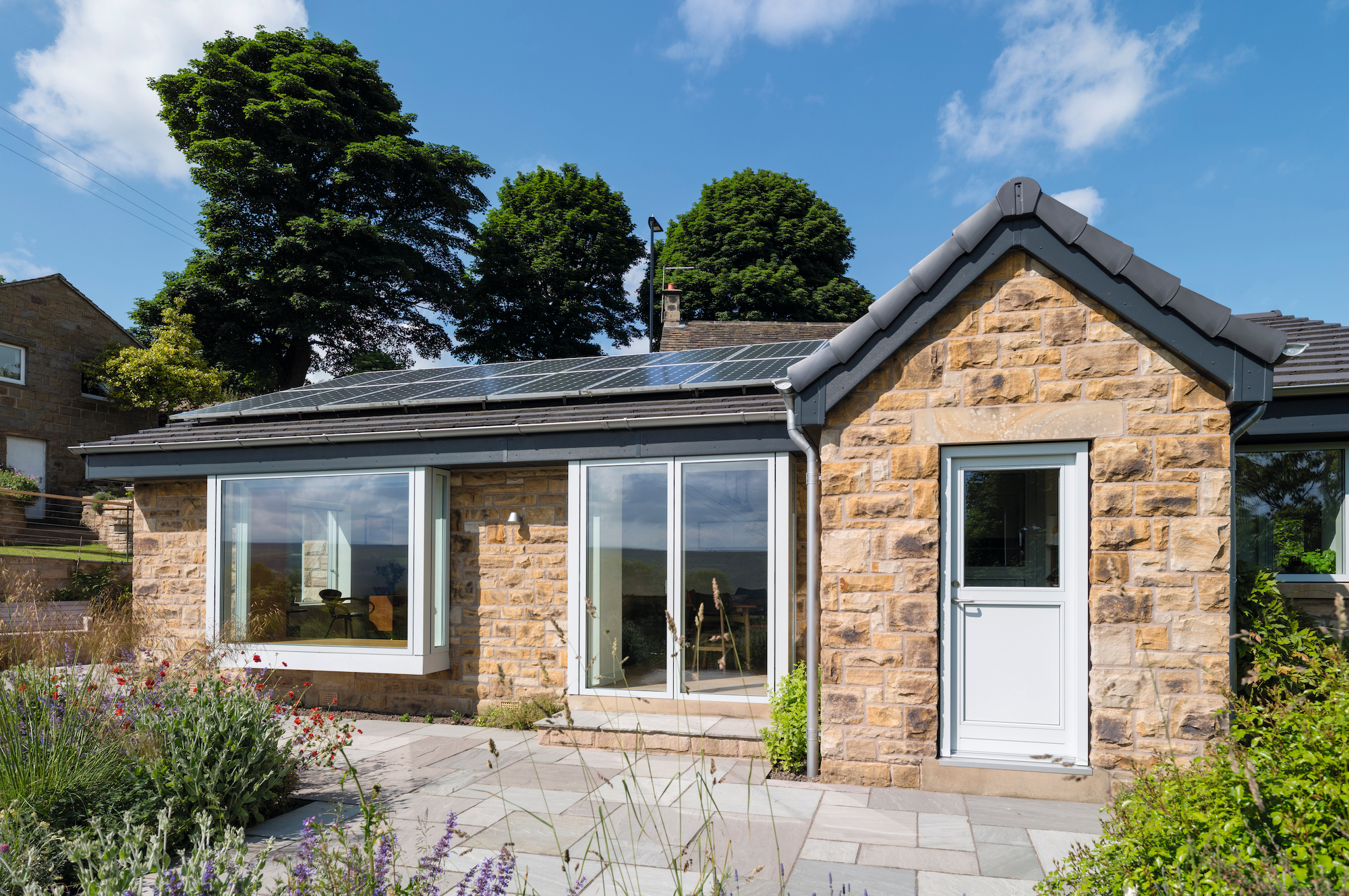
Critics of ULEZ charge on homes proposals say owners should not be blamed
Critics of the proposed ULEZ charge on homes claim the responsibility should not lie with homeowners, but with the government and builders to make homes less susceptible to air pollution.
Giuseppe Borgese, chairman of the Building & Engineering Services Association indoor air quality strategy team said: "Many building managers have not taken the necessary steps to protect occupants from air pollutants. Poorly maintained ventilation systems, clogged or missing filters, dirty ductwork and ageing air conditioning systems are all contributing to a huge health and wellbeing problem inside buildings."
Many alternative solutions have been presented to solve air pollution rather than charging homeowners, such as ensuring newly built homes and existing homes are made more eco-friendly.
This was suggested in the government's Chief Medical Officer's Annual Report for 2022, which stated: "A critical engineering challenge is getting the best solution for maximising ventilation, while keeping buildings warm in winter and cool in summer, and minimising energy and therefore carbon use."
And point out that majority of air pollution happens inside our homes from everyday items
Air pollution is often thought as that which affects those in public spaces near roads but research suggests most pollution that affects us happens inside our homes.
A new report about air pollution in UK homes reveals that indoor air pollution is at dangerous levels. The report, by Airtopia for Clean Air Day, studied 47 homes in Birmingham, London, and the Home Counties. Among various pollutants, formaldehyde was identified as a major toxic one in UK homes.
About 20% of UK homes had a lot of formaldehyde, and 13% had levels above what the World Health Organization recommends. Formaldehyde is a cancer-causing substance found in wood product adhesives, carpets, furniture, paints, and varnishes.
Radon was also detected, a gas that generates radioactive dust that can amass within residences. This gas is accountable for approximately 1,100 annual lung cancer fatalities in the UK.
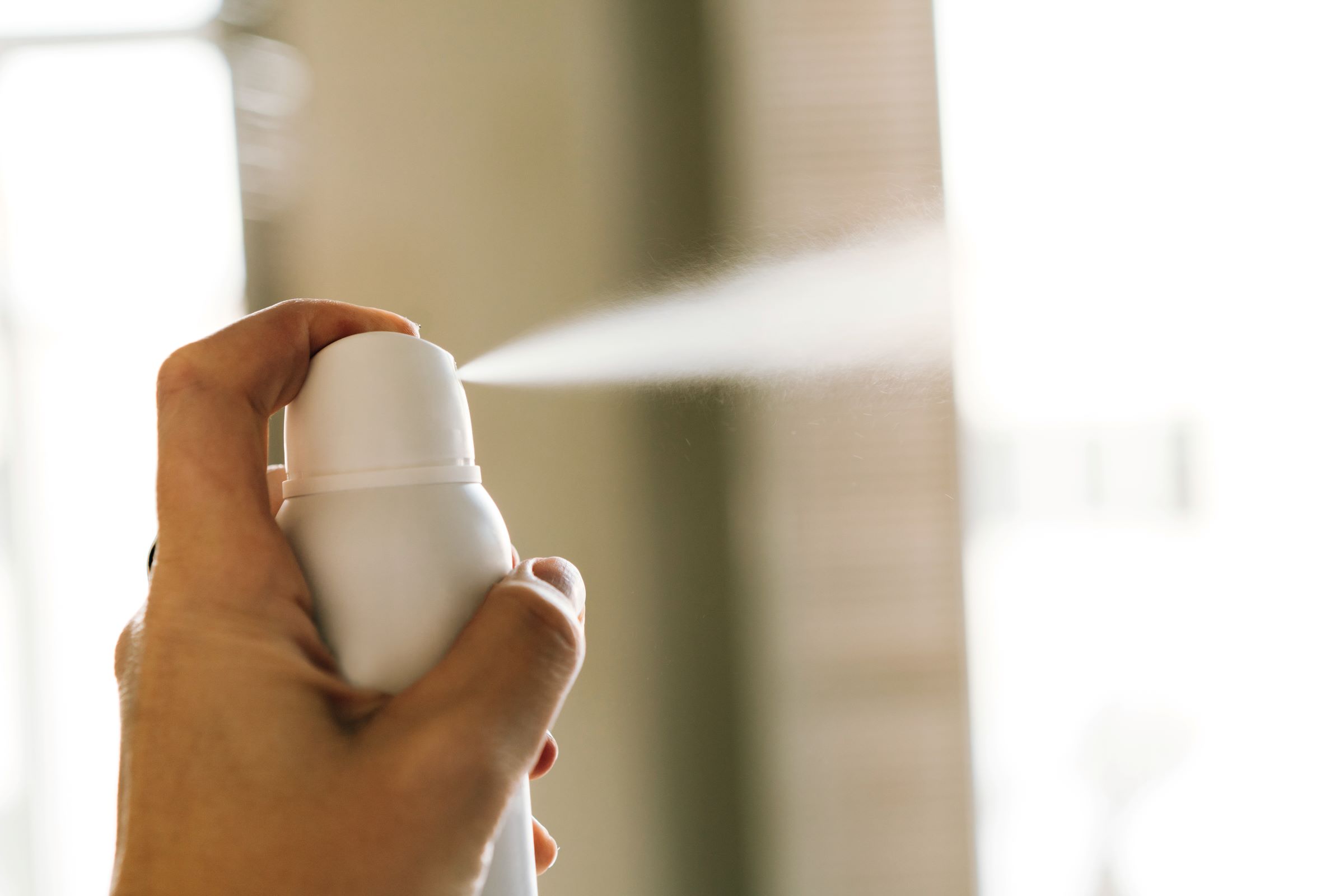
The report also found that 45% of homes had too many Volatile Organic Compounds (VOCs) in the air, and 17% had very high levels of VOCs.
Volatile organic compounds, which are connected to respiratory problems, cancer, and liver damage, emanate at different degrees from common household items such as cleaning products, shower gels, perfumes, adhesives, and even, ironically, air fresheners.
Nicola Carslaw, a professor of indoor air chemistry at the University of York claimed: "The vast majority of people’s exposure to pollution happens indoors.
"If you told people they are being exposed to particles outdoors from vehicles they would get quite annoyed and probably want to avoid certain roads – but they would then happily plug in an air freshener not realising that they are also generating particles."
Additionally, Larissa Lockwood, Director of Clean Air at Global Action Plan, showed findings from a study that showed cooking with gas with can cause indoor air pollution to rise by 5000% to outside levels, which she highlighted to the Government’s Environmental Audit Committee, and that this pollution takes "hours to dissipate".
Chris Large, Senior Partner at Global Action Plan, the charity behind Clean Air Day, said: "There is an alarming lack of awareness of indoor air pollution and the simple things householders can do to protect themselves, such as buying low VOC labelled products, using fragrance-free, milder cleaning products, ensuring they source MDF that meets European standards, and opening windows.”
The government's Chief Medical Officer's Annual Report for 2022, stated: "The role of regulation may well be important in... individual products and appliances that are used indoors."
Hydrogen heating criticised as another NO2 contributor
Hydrogen heating has been suggested as a solution to the UK's inefficient heating problems, but even this form of heating has been highlighted as contributor to NO2 pollution.
Lewis stated: “People assume that burning hydrogen is a clean process that produces only water vapour, but that is not the case.
“The heat of the flame you produce by burning hydrogen causes nitrogen molecules – the main constituent of air – to break apart and form nitrogen oxides, which are pollutants. It is an issue that planners and officials often miss, but it is important.”
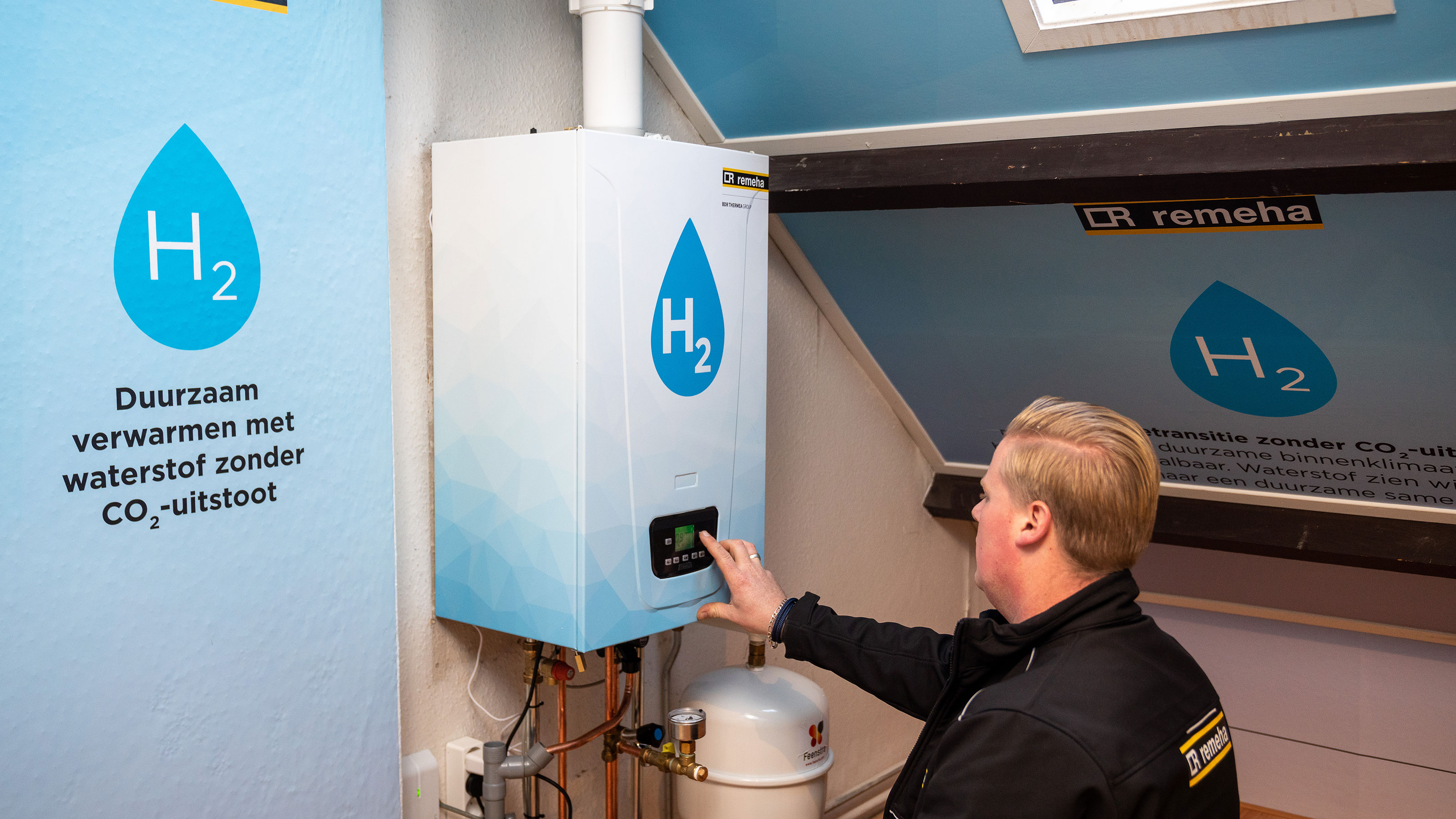
Lewis claims that if hydrogen is going to be used instead of gas boilers, as suggested by the government, then alternatives provisions must be made to limit the pollution they release into the air and also ensure proper ventilation is installed into hydrogen heated homes.
James Lee, Professor of Amospheric Chemistry at the University of York, said: “We need to think about these issues today if we want to keep cutting air pollution in future. We need to reach net zero in the near future, but in a way that also keeps air pollution to a minimum.”
Limiting use of wood burners also suggested
Wood burners have also been highlighted by experts as a significant contribution to pollution in households, and calls have been made to limit their usage.
According to Jay Owens, from the London School of Economics and Political Science, in her new book, Dust: The Modern World in a Trillion Particles, she claims: "Wood-fired stoves have emerged as the predominant origin of fine particle air pollution in the UK."
She says wood fires produce three times more pollutants than vehicles in the UK and it has been suggested previously that wood burners are bad for the environment as government statistics show that domestic wood burning has become the single biggest source of small particle air pollution in the UK,
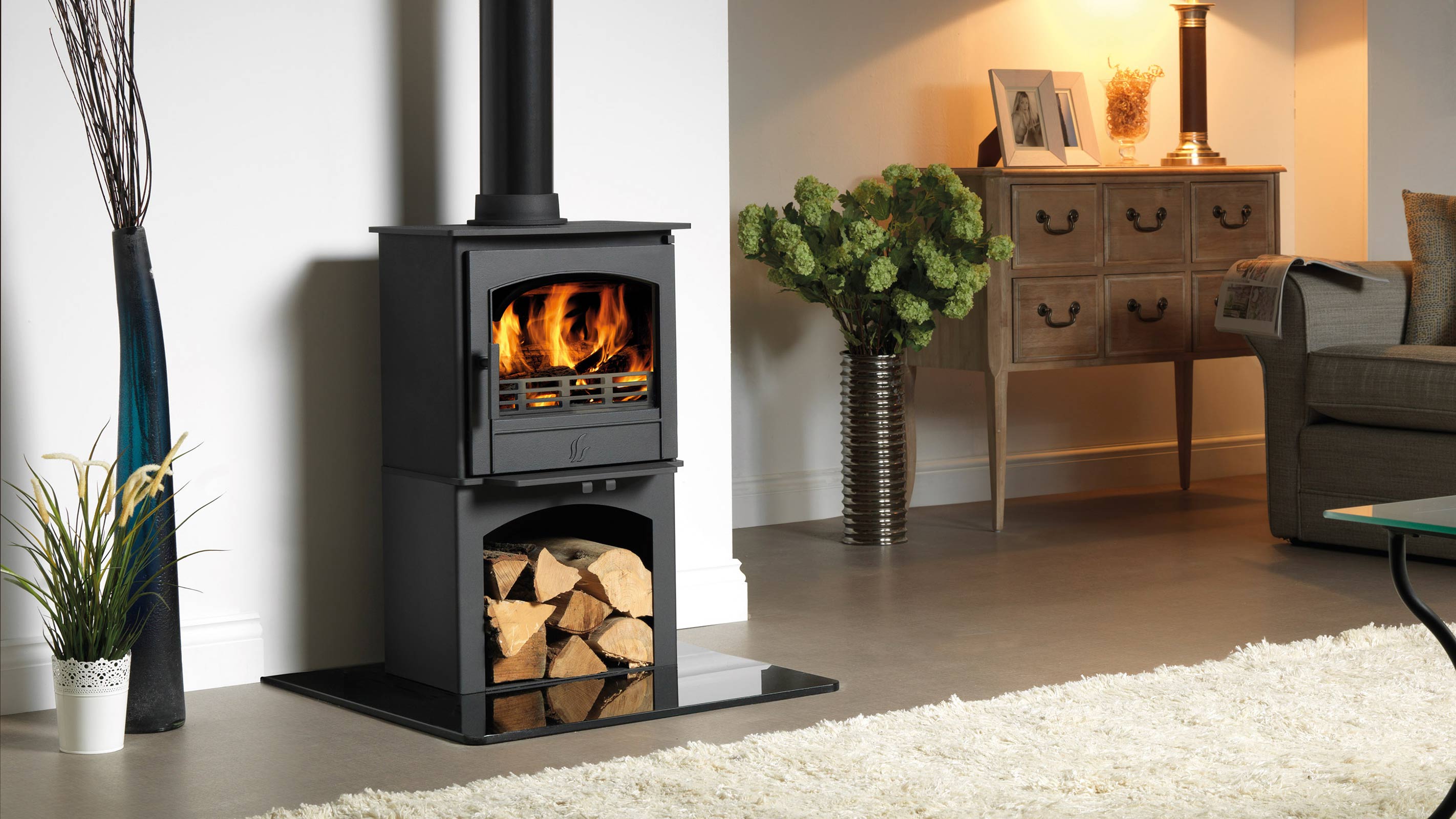
This is concerning as Defra has documented a 42% surge in domestic wood burning since 2000, a trend acknowledged by Tim Dexter of Asthma + Lung UK, who concurs that this practice now stands as one of the leading sources of air pollution in homes.
Since January 2022, new stoves are required to adhere to significantly stricter emission standards under the Ecodesign legislation. However, Lewis also advocates for a prohibition on open fires and the combustion of damp wood. Additionally, he proposes a temporary ban on the use of solid fuel during days of elevated air pollution in the winter.
He stated, "We want individuals to perceive the use of a solid-fuel fire in towns and cities as an exceptional event" rather than "a regular day-to-day source of heat."
Owning a log burner is already limited for some households in smoke-controlled areas where you can only burn smokeless fuel (such as anthracite coal) and wood burning is only allowed with DEFRA-exempt stoves.
However, wood creates more smoke if it doesn't have a good enough supply of oxygen, but you can get wood burners from a range of eco-ratings from A++ to G with the highest-rated ones producing less pollutants and will also allow pollutant gases to escape easier through the chimney, minimising their impact.
Clean Air Bill to be passed this year
Last year, the Clean Air (Human Rights) Bill got approved in the House of Lords and will now be discussed in the House of Commons this year.
This law would make sure that government organizations check pollution levels and create a group to watch over what the government does, all with the aim of making the air better in every UK neighbourhood within five years, according to the World Health Organization's standards.
This bill would also aim to guarantee that everyone has the right to breathe clean air.
However, Housing Secretary Michael Gove recently suggested that he would delay the introduction of the Future Homes Standard.
The Standard is expected to include rules, which meant from 2025 no new homes in England and Wales would be allowed to be fitted with gas boilers.

News Editor Joseph has previously written for Today’s Media and Chambers & Partners, focusing on news for conveyancers and industry professionals. Joseph has just started his own self build project, building his own home on his family’s farm with planning permission for a timber frame, three-bedroom house in a one-acre field. The foundation work has already begun and he hopes to have the home built in the next year. Prior to this he renovated his family's home as well as doing several DIY projects, including installing a shower, building sheds, and livestock fences and shelters for the farm’s animals. Outside of homebuilding, Joseph loves rugby and has written for Rugby World, the world’s largest rugby magazine.
